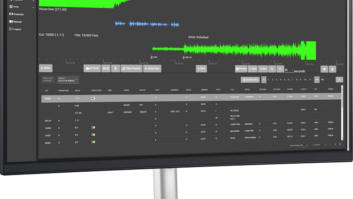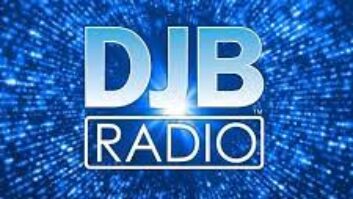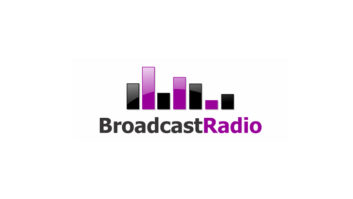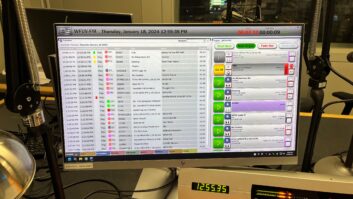
iStockphoto/stuartbur The patent infringement lawsuit pitting Mission Abstract Data/DigiMedia against a number of large broadcast groups is likely to move forward now that it appears the patents in question have survived a second reexamination.
The United States Patent & Trademark Office did reject some claims within those patents, which could bolster broadcasters’ chances in federal court; but most claims survived.
At the same time, attorneys watching the case caution broadcasters not to simply ignore letters seeking money for a licensing agreement.
Meanwhile, MAD/DigiMedia recently filed suit against four more broadcasters, all with FM stations in Texas. They are Access.1 Communications, Tomlinson-Leis Communications LP, Hunt County Radio LLC and NM Licensing LLC, according to court documents.
As in the first lawsuit, the plaintiffs claim to hold patents involving hard-disk radio automation systems used by broadcasters. The original suit targets CBS Radio, Greater Media, Beasley Broadcasting, Cumulus, Entercom and Cox Radio. MAD sued the broadcasters in federal court in March 2011.
CLAIMS STATUS
The patents have now undergone two reexaminations by the USPTO. Neither federal lawsuit can move forward until the question of patentability is answered, observers said.
In April the patent office issued a “Reexamination Certificate” for one of the patents and an “Advisory Action in Ex Parte Reexamination” for the other. In the first, the patent office confirmed 19 claims; three others were withdrawn. In the second, it confirmed six claims, two were rejected and two others withdrawn(see sidebar). MAD had cancelled and amended some claims after the patent office’s findings following the first reexamination.
Separately, U.S. District Court Judge Leonard Stark in late March denied a motion by MAD and associated company DigiMedia Holding Group LLC to lift the existing stay in the first patent infringement suit. Stark wrote that he would lift the stay once the USPTO completes its reexamination. The federal court case has been stayed since November 2011.
“There is no basis for the court to dismiss the case at this point based on the reexamination results to date,” said Bill Ragland, a patent attorney with Womble, Carlyle, Sandridge & Rice, who’s not involved with the case. “The question is whether the court will continue to stay the litigation if MAD appeals the rejection of some of the claims on the patent for which a reexamination certificate has yet to be issued.”
Regardless, it appears most of the claims in each patent have survived the reexaminations, Ragland said.
Ragland said whenever the stay is lifted, the court will likely consult with the parties and then set a schedule with deadlines for discovery, patent claim construction, motions for summary judgment and other key events prior to trial.
Scott Daniels, an intellectual property attorney with Westerman, Hattori, Daniels & Adrian LLP who also is not involved in the case, said the reexamination is nearing an end, which would clear the way for the judge in the federal suit to set a trial date. However, it could be a “good amount of time yet” before a trial would begin, he added.
Daniels says the radio industry still faces a threat even though some of the USPTO rulings seemingly have gone against MAD, though the level of threat likely has been somewhat diminished.
The USPTO ordered the second reexamination, requested by Broadcast Electronics, last year after “prior art” not previously available was presented. “Prior art” refers to information that was available to the public before a certain date. BE, which is not a defendant in the case, also filed the original ex parte reexamination request with the patent office.
Appeals in the second reexamination may not be done, Daniels said; MAD may appeal any claim rejections to the PTO Board. “If it loses there, it may appeal to the United States Court of Appeals for the Federal Circuit.”
He said that some federal judges believe the reexamination phase is not complete until all appeals, even to the United States Court of Appeals for the Federal Circuit, have been exhausted. “Others consider the reexamination certificate to be an ‘effective end’ to the reexamination and resume a stayed case at that point.”
The patent office could also order further reexaminations if new prior art is discovered, he said.
The Patent Nitty Gritty
Patents 5,629,867 and 5,809,246 lie at the center of the infringement suit. In April, an Ex Parte Reexamination Advisory Action was issued for the former, while a Reexamination Certificate was granted for the latter. The findings of patent examiner Michael Roswell confirmed a total of 25 claims and rejected two others.
The patents are titled “Selection and Retrieval of Music From a Digital Database” and describe a hard drive-based computer system for use by radio station owners.
Much of the second ex parte reexamination, requested by Broadcast Electronics, focused on “prior art” that subsequently became available. In the first reexamination, prior art submitted by Arrakis and Dalet played a role; the new reexamination findings cite new prior art from Katz, RCS and ENCO along with some existing patents held by several parties not previously viewed by the examiner.
The USPTO Reexamination Certificate for patent 5,809,246 confirmed 19 claims; MAD agreed to cancel three others.
Roswell determined that “prior art does not explicitly teach wherein said communication network accesses said remote music source over a wide-area network,” and “while Digilink teaches local-area network communications for the transfer of music, it is silent on the use of wide-area networks for such.”
The Advisory Action for patent 5,629,867 confirmed six claims but rejected two others. MAD agreed to cancel two more. The USPTO leaves open the chance for a patent holder to appeal the findings.
The patent examiner wrote: “The patent owner argued Digilink teaches a substantially different redundancy solution that the recited claims 4 and 5 and Digilink fails to teach or suggest a device that is capable of being modified by the addition of an expansion card such as a RAID card.” The patent examiner disagreed with MAD.
The USPTO gave MAD three months to respond. Failure to do so will prompt the USPTO to issue a Notice of Intent to Issue Ex Parte Reexamination Certificate.
He said the protracted reexamination process is sure to be costing the plaintiffs money, yet the amount likely is relatively small compared to litigation.
SEEK COUNSEL
MAD and DigiMedia Holding Group LLC have embarked on several high-pressure campaigns, as recently as this year, to urge radio stations to sign patent license agreements. Stations typically received letters, followed by calls from MAD representatives, asking them to sign voluntary license agreements.
The NAB and other observers have recommended that stations take these letters seriously and seek legal counsel. David Oxenford of Wilkinson, Barker, Knauer, reiterated that point to attendees of an NAB Show session. When he asked how many broadcasters had received letters from MAD/DigiMedia, some 50 raised their hands.
“If you get these letters, don’t throw them away,” said Oxenford. He also advised broadcasters to send copies to the companies that sold the storage and automation systems and ask for their help.
Observers say it is impossible to determine how many broadcasters, if any, have signed patent license agreements but that the number is likely low. Townsquare Media was dismissed from the lawsuit by MAD/DigiMedia in 2011, fueling speculation within the industry that the two reached some sort of settlement and may have entered into a licensing agreement. Townsquare Media at that time did not respond to numerous phone messages and e-mails from Radio World.
Repeated attempts to reach MAD representatives have been unsuccessful. The broadcasters involved in the litigation also have declined comment, citing the pending lawsuit.
Several financial investment chat rooms and blogs have speculated that MAD and DigiMedia are associated with Intellectual Ventures, a high-profile IP licensing company that has sued several tech firms over patent infringement through the years, including HP, Dell, Acer and Logitech.
RW reported in 2011 that MAD was at one point owned by Intellectual Ventures but no longer is. It’s unclear if the current owner is related to Intellectual Ventures. The patents have been bought and sold several times since being issued. Richard Goldman is listed as inventor on the patents, which were applied for in the mid-1990s.











